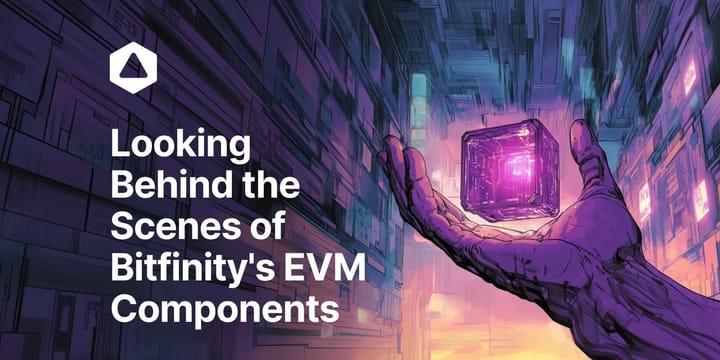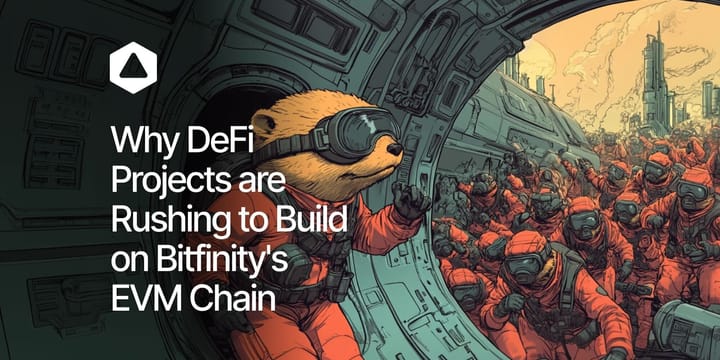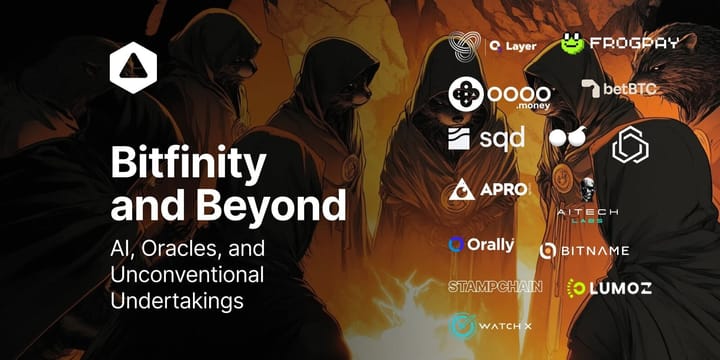The Distinct Advantages of InfinitySwap's IS20 Token Standard
The Distinct Advantages of InfinitySwap's IS20 Token Standard

The Token Standard Consensus Issue
Currently, there is no widely adopted token standard on The Internet Computer, and this has hindered the development of DeFi in our ecosystem. Many projects have sidelined tokenization because of this matter, choosing to wait until a consensus is reached.
Token standards are a subset of smart contract standards, or a framework and corresponding rules that define what a token is, how it works, and how it interacts with the blockchain. A good token standard is secure, interoperable with other commonly adopted standards, and efficient in its communication with different smart contracts. As tokens are typically digital assets with monetary value (whether they be typified as coins or NFTs), it is extremely important to have a token standard that is free from potential vulnerabilities to security exploits.
The best-known token standard is Ethereum’s ERC-20. A large number of altcoins that people are familiar with are ERC-20 tokens, including Tether, Chainlink, and the popular meme coin Shiba Inu.
Ethereum and ERC-20’s dominance is due to first-mover advantage in the cryptocurrency space, the consequent battle-tested reliability of the code, and a corresponding network effect. However, 2020 saw explosive growth on the Binance Smart Chain, which showed the world that alternative blockchains (and their respective token standards) are viable options for DeFi activity.
What Exactly Is The Problem?
Given the relative adolescence and unique architecture of the Internet Computer blockchain, there are several issues that a token standard must resolve. For example, there is a loss of atomicity due to the asynchronous nature of cross-canister calls, which could lead to problems like canister balance update errors in a DeFi scenario if a particular transaction fails. The mutability of canisters is also something to be mindful of, as there is the possibility of malicious API implementation over time after the initial launch.
Luckily there are several talented teams in the IC ecosystem working independently to create a safe, working token standard. The DFINITY Foundation is also holding a series of meetings for a Ledger & Tokenization Working Group so that developers can share ideas and hopefully produce a token standard that best serves the community at large.
Before we delve into the distinct advantages and solutions provided by InfinitySwap’s IS20 token standard, here are a few of the other notable fungible token standards currently in existence within the IC landscape:
IC Ledger
Contrary to what you may have thought, DFINITY’s Cycles (which are used in a similar fashion as Ether to power the network) are the underlying native tokens on the Internet Computer blockchain, not the ICP token. The implementation of ICP’s functions actually work within a smart contract called “Ledger” on the network, making IC Ledger the first token standard of the blockchain. The code, which is open-source through the DFINITY foundation, is not ideal for DeFi usage but nonetheless a valuable resource for developers tackling the token standard problem.
DIP20
Created by Psychedelic DAO, DIP20 is an ERC-20 style token standard. Some IC enthusiasts may already have some exposure to DIP20, as it is the token standard used by Sonic, another DEX/AMM on the Internet Computer. Its similarity to ERC-20 means a quick entry point for existing blockchain developers. The team is working with a focus on interoperability with Ethereum through the process of sustaining the same shared interfaces.
DFT
As with Psychedelic's DIP20, the DFT token standard by Deland Labs is modeled after ERC-20 but with added capabilities. The final version of their token standard will combine the functionalities of ERC-20 with additional features found in the ERC-223, ERC-667, and ERC-777 token standards, specifically tailored for the Internet Computer.
EXT
This token standard, created by Toniq Labs, is modeled after ERC-1155. EXT takes a multi-token approach with future extensions that will allow additional functionality based on the purpose of the token created. This means that both fungible and non-fungible tokens can be created with the EXT token standard. Potential usage ranges from cryptocurrency ledgers to dynamic NFTs like video game assets.
DRC20
Created by ICLighthouse, DRC20 is another token standard modeled after ERC-20. As with DIP20 and DFT, DRC20’s interface similarity to ERC-20 means ease of entry for blockchain developers new to the Internet Computer, as well as future compatibility.
The Solution - The IS20 Token Standard
InfinitySwap’s experienced team comes from a heavy background in cybersecurity and high-performance networks, which means that safety, decentralization, and interoperability are the three pillars that the IS20 token standard is built upon.
The team’s focus on identifying potential exploit issues has led to InfinitySwap leading the way in catching and finding solutions to numerous problems, such as the ic_cdk storage bug, something that can lead to memory corruption through dangling references.
Other IS20 advantages include:
Superior Compatibility
IS20 is compatible in its interface with both the ERC-20 and DIP20 token standards, as well as the IC ledger canister.
Advanced DOS protection
While other token standards have chosen to prevent DOS attacks by implementing a transaction fee, InfinitySwap foresees that it is not enough to guarantee that a token canister will be protected from having its cycles drained. This is why we have chosen to protect against DOS attacks through guarding update calls via a native inspect_message function
Improved inter-canister call security via canister signatures, a solution unique to IS20
Currently, inter-canister calls are unsafe because of the nature of DFINITY’s canister communication model, which demands that all outstanding messages finish processing before a canister can be updated. This is a huge security risk as a downstream canister could potentially call (whether by mistake or malicious intent) for an infinite loop, freezing the first canister.
Automatic top-up of Cycles
A unique, decentralized bidding market will be a feature of the IS20 token standard, which will allow users to participate in auctions by bidding Cycles in exchange for proportional fee-sharing. This will greatly add to decentralization, reducing legal and regulatory liabilities for individuals looking to launch their own token. It will also allow token canisters to run in perpetuity without the need for manual interference.
Improved storage
Instead of being limited by canister smart contract storage (4GB), IS20 will make use of canister subnet stable storage, which is significantly larger (300GB). This means queries will be more efficient and there can be a useful implementation of features like indexing token transactions by date and user.
Modularised implementation and a Factory Method
Developers will appreciate our clean and modular approach to implementation, which was designed for ease of use. The factory method means you can maintain a registry of tokens launched on your platform and easily be able to upgrade your tokens.
Feature-rich, robust code is what sets IS20 apart
The developer team, which boasts over a dozen experts in the field, tirelessly tests the code to make sure that all potential attack vectors have been considered and mitigated. Although other token standards currently offer insight and potential solutions to common problems, InfinitySwap's core tenets of safety, decentralization, and interoperability puts IS20 in a league of its own.
DeFi on the Internet Computer will be unlike anything that the crypto world has seen before, and the IS20 token standard will ensure that you'll witness something truly incredible. We can't wait for you to see it in action.
Connect with InfinitySwap
Twitter | Website | Telegram | Discord | Github

*Disclaimer: While every effort is made on this website to provide accurate information, any opinions expressed or information disseminated do not necessarily reflect the views of InfinitySwap itself.





Comments ()